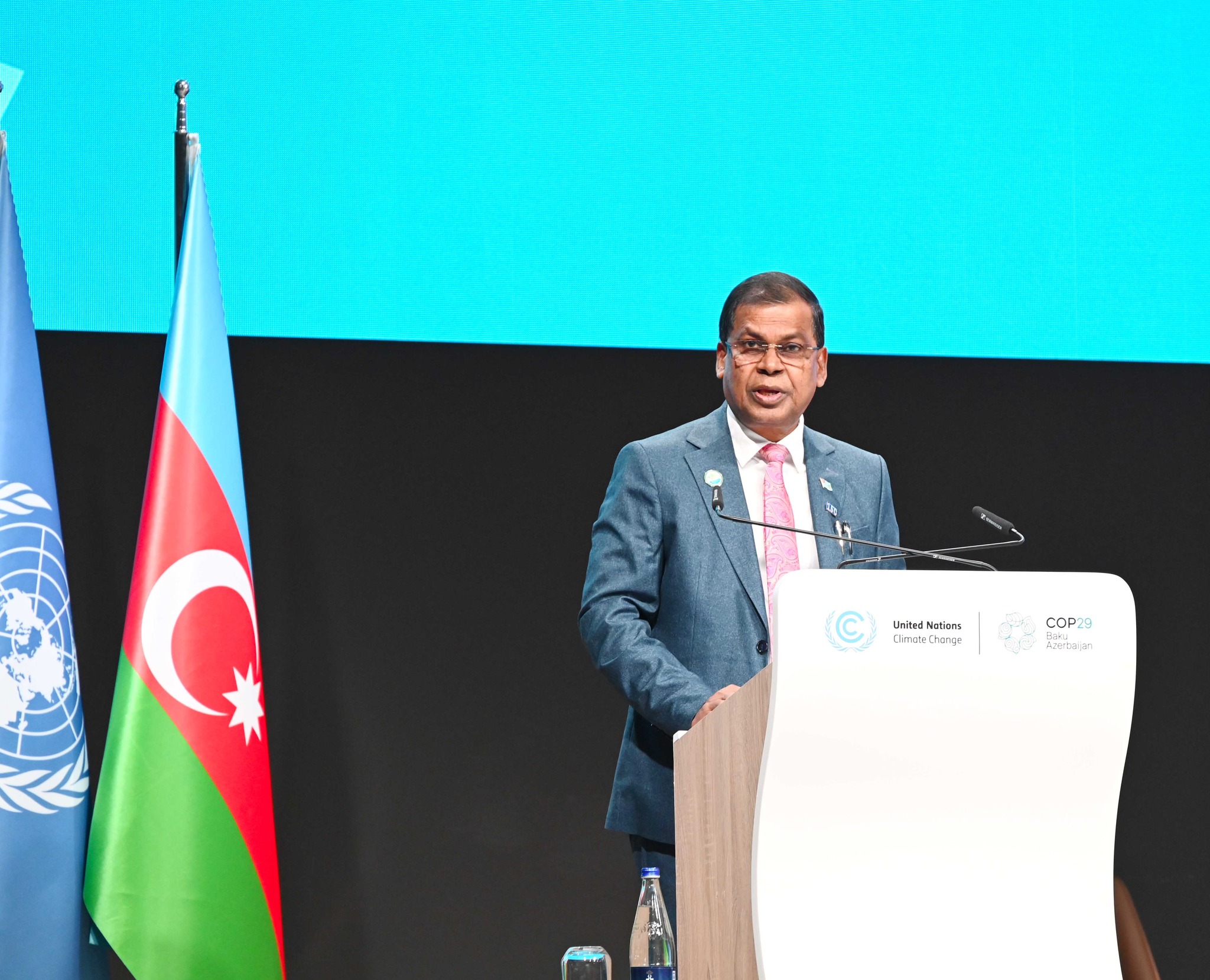Achieving the New Collective Quantifying Goal (NCQG) and keeping the global average temperature rise below 1.5 degrees Celsius are directly linked; one cannot be achieved without the other.
This was reiterated by the Deputy Prime Minister and Minister for Finance Biman Prasad, when he addresses World Leaders at COP29, reminding them that achieving these was fundamental to not only protecting vulnerable communities but to also safeguarding productivity, security, and shared prosperity.
DPM Prasad, in delivering the National Statement, stressed that keeping global average temperature rise below 1.5 degrees Celsius was the science of survival, at the core of multilateral efforts at the United Nations Framework Convention on Climate Change (UNFCCC) COP29.
He emphasised that a failure to put in place the financial fundamentals for the transition as outlined in Nationally Developed Contributions (NDC’s) would further distress the resilience of vulnerable communities around the world.
“The world needs 1.3 trillion to deliver 1.5 degrees. The alternative is the burden of tens of trillions in loss, damage, and costs over the next decade in an unstable, dangerous, plus 3-degree world,” DPM Prasad said.
Reiterating that the cost of carbon eclipsed any semblance of credible economic rationale for keeping fossil fuels in play, DPM Prasad called for the world leaders to be on the right side of history and to deliver stability now.
He underscored the urgency to raise the bar by locking in the basis for the Paris Agreement through the 1.5-degree commitment, aligning it to 2025 NDCs, and securing an NCQG that is evidence-based and recognises the specific needs and special circumstances of Small Island Developed States (SIDS), and Least Developed Countries (LDCs).
“All of our names and flags are on the record, and this record will not be forgotten—it will instead be analysed word for word by future generations whose reality you are determining and shaping today,” he said.














